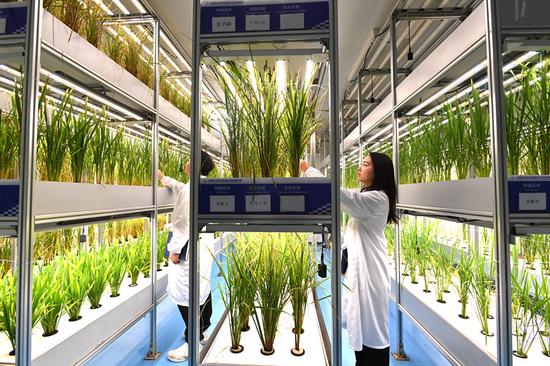Shanghai scientists have located a new pathogenic locus in a gene closely related to autism, and have developed a gene editor that can correct the mutated gene and thus improve autistic behaviors in mice.
A paper about the joint research by the scientists from the Songjiang Institute of Shanghai Jiao Tong University School of Medicine, the Center for Excellence in Brain Science and Intelligence Technology affiliated with the Chinese Academy of Sciences, and the Institute for Translational Brain Research of Fudan University was published on the website of the journal Nature Neuroscience last month.
For the first time, it reported that the autistic behaviors of mice with the mutant gene Mef2c were successfully improved using in vivo base editing technology in the brain.
"We're making preparations to enter human clinical trials. We'll first do safety experiments on macaques, and if that goes well for one to two years, we can enter human clinical trials," said Qiu Zilong, a leading researcher of the study.
Medical experts said that the treatment of autism is a challenge for medicine, with no specific drug able to treat it.
"This study demonstrates the potential of in vivo base editing in the treatment of neurodevelopmental disorders, and also brings insights into the delivery and editing of other types of base editors in the brain," said Chen Jia, a researcher with the School of Life Science and Technology at ShanghaiTech University.
Autism is a neurodevelopmental disorder, in which patients exhibit social impairments and repetitive behaviors of varying severity. Statistics of the prevalence of autism in children aged between 6 and 12 in China are 0.44 to 0.95 percent for boys and 0.12 percent to 0.3 percent for girls.
Previous studies found that the gene Mef2c is an important risk gene for autism, and mutations in the gene can cause defects in brain development in children, which are characterized by psychomotor disorders, lack of speech and abnormal motor patterns.
The scientists developed a gene editor, embedded it in the shell of a type of virus, and injected it into the mice. They later found that through such gene repair, the reduced expression levels of Mef2c protein in the brains of the mice were restored, and their social impairment and repetitive behaviors were improved significantly.
Experts said the results of the study showed that gene editing technology is expected to benefit patients with genetic diseases of the brain, such as by using tools with a wider editing range for the diversity of pathogenic sites to be edited.


















































 京公网安备 11010202009201号
京公网安备 11010202009201号